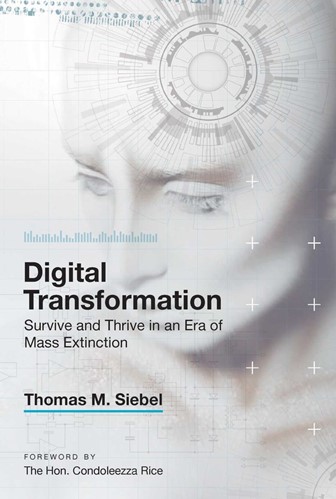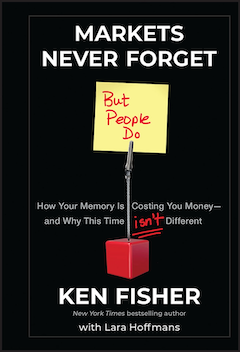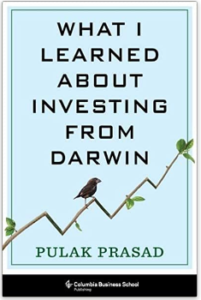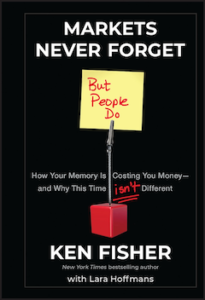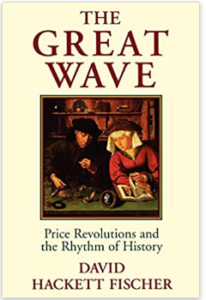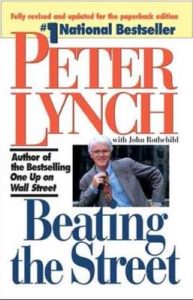By Thomas Siebel, Jul/2019 (256p.)
Founder of a salesforce automation software company, Siebel Systems, which was acquired by Oracle in September 2005, Tom Siebel is a credible source on digital transformation, which he characterizes as the combination of 4 grossly-overused buzzwords: cloud, big data, IoT, and AI. Packed with such buzzwords and often too promotional and optimistic (in my opinion) – the book is still very informative and educational and it provides interesting insights and opinions, good historic context, and clarity on a complicated topic. Written mainly for CEOs, the first half of the book was excellent, but towards the end, unfortunately, it became increasingly prescriptive and promotional. Siebel ‘s new company, C3.ai, provides software for deploying enterprise AI solutions, mainly for large, capital-intensive companies in the Energy, Transportation, manufacturing, and Utilities space. The case studies he provides (like CAT, MMM, and DE) were somewhat underwhelming in my opinion. I am willing to bet that outstanding companies like Intuit, Idexx, Mettler-Toledo, and Accenture, for instance, are well-ahead of these reactive dinosaurs that he profiles. It was noteworthy (to me at least) that he never even mentions Accenture, since they are global leaders in digital transformation – and especially since he mentions the importance of the IT consultant, and also mentions several of Accenture’s competitors. He also claimed that Zelle (one of his clients) was more popular in the US than Venmo, citing an article written in 2018 – but I do not think that was ever true.
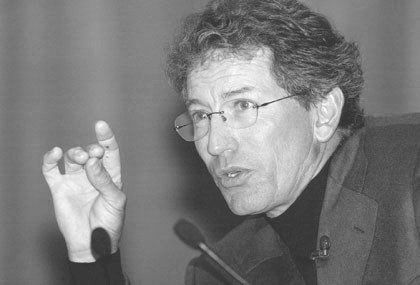
In summary, despite its minor shortcomings and potential inaccuracies, the book offers some precious insights on how technology evolves (in spurts), and why the current inflection point is so special. All told, Siebel makes a convincing case for why one should stay bullish and focused on tech. He also goes a long way in educating the reader on the industry and the technologies that underpin digital transformation.
Best,
Adriano
Highlighted Passages:
His high-level definition of “Digital Transformation”: “For now, suffice it to say that at the core of digital transformation is the confluence of four profoundly disruptive technologies—cloud computing, big data, the internet of things (IoT), and artificial intelligence (AI).”
On Professor Daniel Bell’s early depiction of a Post-Industrial society (from 1973): “Bell conceived of this idea before the advent of the personal computer, before the internet as we know it, before email, before the graphical user interface. He predicted that in the coming century, a new social framework would emerge based upon telecommunications that would change social and economic commerce; change the way that knowledge is created and distributed; and change the nature and structure of the workforce. … A post-industrial society is about the delivery of services. It is a game between people. It is powered by information, not muscle power, not mechanical energy: If an industrial society is defined by the quantity of goods as marking a standard of living, the post-industrial society is defined by the quality of life as measured by the services and amenities—health, education, recreation, and the arts—that are now available for everyone. The core element is the professional, as he or she is equipped with the education and training to provide the skills necessary to enable the post-industrial society.12 This portends the rise of the intellectual elite—the knowledge worker. Universities become preeminent. A nation’s strength is determined by its scientific capacity.”
On the parallel between the evolution of species and technology: “Punctuated Equilibrium suggests that the absence of fossils is itself data, signaling abrupt bursts of evolutionary change rather than continuous, gradual transformations. According to Gould, change is the exception. Species stay in equilibrium for thousands of generations, changing very little in the grand scheme of things. This equilibrium is punctuated by rapid explosions of diversity, creating countless new species that then settle into the new standard. … The evidence suggests that we are in the midst of an evolutionary punctuation: We are witnessing a mass extinction in the corporate world in the early decades of the 21st century. ”
On the importance of the CEO (bullish for Accenture): “I have witnessed many tech-adoption cycles over the past four decades. With the promise of performance improvements and productivity increases, such innovations were introduced to industry through the IT organization. Over months or years, and after multiple trials and evaluations, each gained the attention of the chief information officer, who was responsible for technology adoption. The CEO was periodically briefed on the cost and result. With 21st-century digital transformation, the adoption cycle has inverted. What I’m seeing now is that, almost invariably, corporate digital transformations are initiated and propelled by the CEO. Visionary CEOs, individually, are the engines of massive change. This is unprecedented in the history of information technology—possibly unprecedented in the history of commerce. Today, CEO-mandated digital transformation drives the company’s roadmap and goals.”
On AirBnB and expanding TAMs: “In other cases, the disruption could create new, ancillary markets. Take Airbnb, for example. When it was first launched, many predicted that Airbnb would completely disrupt the hotel industry as travelers would increasingly choose to stay in private apartments and houses over hotels. But the hotel industry has not crumbled—in fact, it is still thriving. So is Airbnb. Airbnb’s actual impact has been in other areas: reducing the number of homes available in a neighborhood for people to live, potentially driving up the price of rent. Instead of competing with hotels, Airbnb is competing with renters. “Was that Airbnb’s intent? Almost certainly not,” writes journalist Derek Thompson. “But that is the outcome, anyway, and it is a meaningful—even, yes, disruptive—one. Airbnb is a transformative travel business. But most people failed to predict the thing it would transform—for good and bad.”
On the significance of intellectual property: “In his book Dealing with Darwin, Moore uses the example of Tiger Woods to clarify core and context. There is no debate that Tiger Woods’s core business is his golfing, and his context business is marketing. While marketing generates a large amount of money for Woods, there could not even be marketing (the context) without his golfing (the core). Context helps to support and keep the core running, while core is a company’s competitive advantage. The general rule of thumb: Context means outsourcing, while core means intellectual property.”
On the war for AI leadership: “Today the U.S. and China are engaged in a war for AI leadership. The outcome of that contest remains uncertain. China clearly is committed to an ambitious and explicitly stated national strategy to become the global AI leader.”
On the growth of cloud computing: “In my professional experience I have never seen anything like the adoption rate of cloud computing. It is unprecedented. … How did that happen? I am not certain that I can explain the 180-degree turn at global scale in the span of a few years, but there is no question it happened. And as discussed previously, it is clearly reflected in the revenue growth of the leading cloud vendors. It is also clear that corporate leaders are afraid of cloud vendor lock-in. They want to be able to continually negotiate. They want to deploy different applications in clouds from different vendors, and they want to be free to move applications from one cloud vendor to another.”
